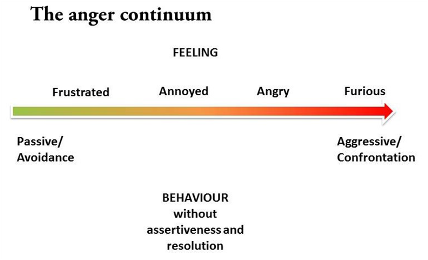Estimated reading time: 8 minutes
Build your immunity to the three most common causes of relationship unhappiness. These deadly relationship behaviours are the 3A’s, otherwise known as Addictions, Affairs & Anger (which includes any acting out or unmanaged mental health issues).
Relationships are living systems. Like all living things, they get infected with toxic agents that can result in death. Immunity provides a way to fight against potentially infectious toxins.
The 3-A’s are toxic not only to couple relationships but also to friendships, work relationships and parent-child relationships. Even though I focus here on couple relationships, the same need for immunity from these toxins applies to all your relationships.
Beware of your impulses
We all get impulses to do things that our heads say are out of line. Drinking a bit too much, getting a bit too friendly with someone when you’re committed elsewhere, and speaking harshly when a cooperative approach would have been better. These are all mistakes. Mistakes are for learning.
Mistakes create feelings of regret and guilt. These are signs that we need to explore what went wrong, make a genuine apology, and learn. This equips us to not make the same mistakes again. Learning from our mistakes is the foundation for building immunity. It also means that we learn to say “no” in respectful ways to ourselves and to our partners.
A small dose of a toxin can strengthen your immune system’s ability to resist the addiction-affair-anger impulses. Without resistance, these behaviours may get increasingly toxic until they get you and your relationship into trouble.
A full apology, like I describe in How to apologise effectively, always includes what you have learned that will prevent a repeat occurrence. This is how you learn from mistakes. And these learnings work as a vaccine against future similar mistakes.
Vaccinating your relationship often results in it growing stronger and more loving over time. In contrast, failing to learn from mistakes and continuing to make the same mistakes can lead to one or more of the 3 A’s repeating.
The good news is that you can vaccinate your relationship without having to make the mistakes first. This is what prevention means. You can do it by being aware ahead of time of the dangers and applying the appropriate preventative measures without having to suffer from these toxic relationship mistakes.
The costs of the 3 A’s – They are relationship deal-breakers
Addictions, affairs and anger (acting out/unmanaged mental health issues) are mistakes that can get you fired from the role of partner. In addition to wrecking your relationship, they have deeply negative impacts on your children. When they see you ineffectively managing addictions, affairs and anger, they learn that this is what adults do. These behaviors also teach your kids that attachments to others are unreliable and unsafe, and make your kids less able to establish secure positive relationships as they mature.
Below are remedies that can vaccinate you, build immunity & keep your relationships healthy.
-
Addictions.
If your substance or process addiction, like alcohol, drugs or habits like excessive shopping, gambling, internet use etc, ever prompted your partner to say, “Stop” I suggest you pay attention! If it’s a problem for your partner, it’s a problem for you and your relationship.
The biggest mistake people make with addictions is denying that they’re over-doing it. They get defensive, minimize, rationalize or blame. They say things like: “I’m only drinking so much because…”, “You do it too”, “Everyone I know does it”, or “I just drink….”
Denial is tempting, extremely self-defeating and also sabotaging to relationships. Resist this temptation, then you have a chance at averting the potentially relationship-threatening consequences of an unmanaged addiction.
The remedy:
Take your partner’s concerns seriously. Responsibly assess your habit. Get help.
If your addiction is how you escape from stresses in your life, it’s time to face those stresses head on. Addictions are usually a way to avoid addressing and resolving problems – in relationships, work or elsewhere. Replace running away with talking about your problems with someone you trust.
If your stresses are from relationship problems, learn the skills of talking problems through constructively. As I write in “How to bring up sensitive issues”, effective communication requires learning many skills. You can learn these on your own via books or online courses or by finding good couples counselling. My article on couples counselling explains what competent couple therapists do. And here are some questions you should ask any couples therapist you interview before making a first appointment.
-
Affairs.
If your relationship contract is for a closed (monogamous) relationship, beware of letting yourself enjoy the early pleasurable phase of getting to know a new person.
A minor sexual flirtation outside of your relationship can feel good. The problem is that sexuality is a slippery slope phenomenon. Initially the activity seems neither too slippery nor sloped, until – oops – you’re down the slope. Take this free online quiz to see whether it’s “Just friends or is it an emotional affair?”
The remedy:
Plan ahead with your partner about what are precisely the do’s and don’ts in your relationship. Agree on prevention policies. Take early exits from potentially sexual situations which are outside your relationship contract.
Make clear contracts about whether you both want a closed relationship, a semi-open relationship, an open relationship, a polyamourous or a polysexual relationship. What are your contracts about desires, arousal, masturbation, flirtation, allowed actions, sex, love and so on? Read Tammy Nelson’s “The New Monogamy” and get clear with your partner. It takes focus and negotiating skills to contract well.
Sexual arousal is bewitching. Temptation becomes more and more appealing the longer you stay in a sexually charged exchange. Have a plan about how to maintain distance from situations in which the magnetism could be stronger than your desire to protect your relationship. That plan, plus an agreement that you and your partner will talk openly about any temptations that arise, helps you deal with them as a unified team. Make clear contracts and be transparent – this is your vaccination.
-
Anger, acting out, unmanaged mental health issues.
Anger can lie anywhere on the continuum from withdrawal, passive avoidance, to verbal or physical abuse.
We can all feel angry in charged situations. Anger is not “bad”. No emotion in itself is bad. Anger can be a healthy response to boundary violations. It can protect us. The challenge is learning to prevent angry feelings from erupting into counter-productive behaviours. The strong urge to act out in anger can lead to increasingly bad outcomes. Even a soft angry voice, or reactive words and behaviours can cause trouble.
Contempt is the best predictor of separation, as shown in the research done by John Gottman. It is the worst offender in what he calls “The Four Horsemen of the Apocalypse”. Each one of these ways of acting out anger or fear has an antidote that must be practiced over and over until it becomes a more habitual response to a trigger.
Subtle sarcasm can sabotage a relationship quietly. High intensity anger with verbal or physical abuse dramatically brings an end to the relationship and your well being. If you’re with a partner who tries to control you through anger, that is a recipe for relationship failure. Immediately call RESPECT.
The remedy:
Learn to recognise your individual anger signs and take a responsible time-out. Learn about anger and self-soothing so you can channel it into constructive outlets. Take an anger management course.
Anger is a STOP sign. At a stop sign, you Stop, Take a deep breath, Observe and only then Proceed. When you observe, you notice your physical cues, your triggers, your thoughts and feelings, define the problem, and then figure out a safe way to proceed. Instead of acting out when you’re angry, calm down, figure out what you want, and find a more effective, less-damaging, non-angry way to get it.
The angrier you let yourself get before you stop everything, the more your anger temperature gauge is likely to rise. This makes it increasingly difficult to work against. Exit early from potentially escalating situations – this is essential. Contract with your partner that if either of you is getting angry, that you will leave the room by taking a responsible time-out and that your partner won’t stop you leaving. Don’t stay and explode. It causes too much damage.
The good news
The 3 A’s can be prevented before they occur. Be sure that you pay attention to their early warning signs. Prevention is better than cure. These signs are telling you “Stop. Wrong way. Do Not Enter!”
If the Three A’s are causing problems in your relationship, you may need an experienced relationship counsellor & coach. Call 0421 961 687 or email us to schedule an appointment. International callers should call +61 421 961 687.
You deserve the best trained relationship coaches if you’re planning to invest time and money in your relationship. If you’re not ready to book an appointment, call us on 0421 961 687 to book a FREE 15 minute phone consultation to discuss how we may be able to assist you.



Leave a Reply